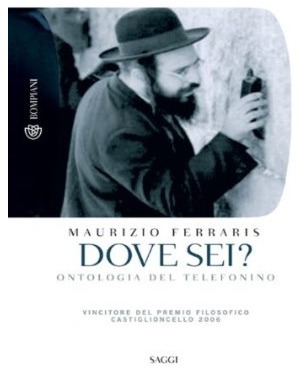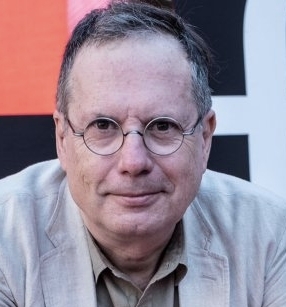
This book sheds light on the most philosophically interesting of contemporary the cell phone. “Where are you?”―a question asked over cell phones myriad times each day―is arguably the most philosophical question of our age, given the transformation of presence the cell phone has wrought in contemporary social life and public space. Throughout all public spaces, cell phones are now a ubiquitous prosthesis of what Descartes and Hegel once considered the absolute the hand. Their power comes in part from their ability to move about with us―they are like a computer, but we can carry them with us at all times―in part from what they attach to us (and how), as all that computational and connective power becomes both handy and hand-sized. Quite surprisingly, despite their name, one might argue, as Ferraris does, that cell phones are not really all that good for sound and speaking. Instead, the main philosophical point of this book is that mobile phones have come into their own as writing machines―they function best for text messages, e-mail, and archives of all kinds. Their philosophical urgency lies in the manner in which they carry us from the effects of voice over into reliance upon the written traces that are, Ferraris argues, the basic stuff of human culture. Ontology is the study of what there is, and what there is in our age is a huge network of documents, papers, and texts of all kinds. Social reality is not constructed by collective intentionality; rather, it is made up of inscribed acts. As Derrida already prophesized, our world revolves around writing. Cell phones have attached writing to our fingers and dragged it into public spaces in a new way. This is why, with their power to obliterate or morph presence and replace voice with writing, the cell phone is such a philosophically interesting object.
Author

Maurizio Ferraris (Torino, 1956) è un filosofo e accademico italiano. Dal 1995 è professore ordinario di filosofia teoretica presso la Facoltà di Lettere e Filosofia (dal 2012 "Dipartimento di Filosofia e Scienze dell'Educazione") dell'Università degli Studi di Torino. Ha studiato a Torino, Parigi (prendendo un diploma d'études approfondies con Jacques Derrida alla Ecole des Hautes Etudes en Sciences Sociales), all'Università di Heidelberg e insegnato in importanti università europee. Dirige la Rivista di Estetica ed è nel comitato direttivo di Critique, del Círculo Hermenéutico editorial e di aut aut. Dal 1989 al 2010 ha collaborato al supplemento culturale de Il Sole 24 ORE; dal 2010 scrive per le pagine culturali de la Repubblica. È inoltre editorialista per la Neue Zürcher Zeitung. Dopo aver scritto e condotto Zettel - Filosofia in movimento per Rai Cultura, dal 2015 conduce Lo Stato dell'Arte su Rai 5, dedicato all'approfondimento di temi d'attualità, politica e cultura.